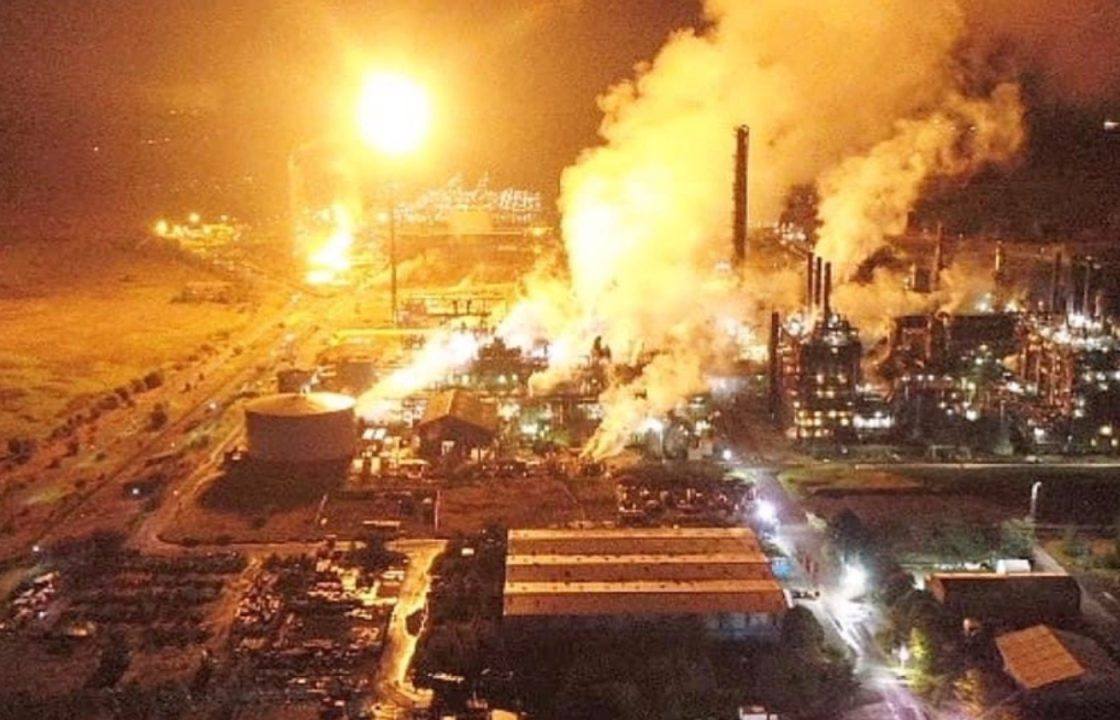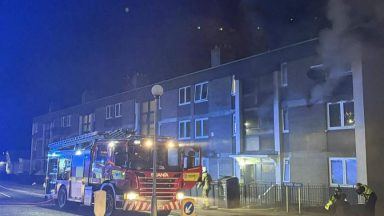A chemical plant in Fife has been fined after a noise that sounded like a “jet engine” blared for six days, prompting 900 complaints from residents.
ExxonMobil Chemical Ltd pleaded guilty to breaching pollution control regulations at the Cowdenbeath plant on various occasions between April 7 and April 26, 2019.
The breaches occurred when the company was required to carry out continuous flaring for five days following an unexpected shutdown at the plant.
The flaring caused significant disruption to the local community, with SEPA receiving more than 900 complaints, the highest number ever for a single environmental event in Scotland.
Flaring involves the burning of excess gas and is a necessary safety measure to prevent a build-up of gas within the plant.
SEPA added that smoke from the elevated flare stack exceeded legal limits, with emissions darker than Ringlemann Shade 2 for 110 minutes, more than seven times the 15 minutes permitted.
Residents described the noise from the flaring “like a jet engine” or a “blowtorch”, which left them unable to sleep.
People were reluctant to go outside due to the noise, and many referenced anxiety and the fear that something more serious, like an explosion, could happen.
Some of the complaints came from residents who lived as far as five and a half miles away in Kirkcaldy.
Following an investigation, prosecutors said that the company did have suitable processes and procedures in place, and if they had been followed correctly, the flaring could have been avoided.
The company was fined £176,000 after an appearance at Kirkcaldy Sheriff Court.
Iain Batho, who leads on environmental matters for the Crown Office and Procurator Fiscal Service (COPFS), said: “The law in Scotland and the terms of the permits granted to companies involved in running petrochemical plants holds those companies to high standards designed to mitigate the risks of pollution and of causing disruption or harm to the general public.
“On this occasion, ExxonMobil Chemical Ltd fell below those standards and breached the terms of their permit.
“The impact of the unplanned flaring from Mossmorran in April 2019 was both preventable and unacceptable, and it caused substantial stress and anxiety to people living within several miles of the plant.
“This was a complex case following a thorough and large-scale investigation by SEPA.
“The conviction in this case highlights that large global companies will ultimately be held to account for breaches of environmental legislation in Scotland and recognises the significant impact that this incident had on local communities.”
Ross Haggart, SEPA’s chief operating officer for Regulation, Business and Environment, added: “For nearly a week, communities around ExxonMobil Chemical Limited’s site were impacted by unacceptable and preventable flaring, causing noise and disruption on a scale that was simply intolerable.
“The scale of complaints, the highest number ever received by SEPA for a single environmental event, illustrates how many people were impacted by the noise, described as “like a jet engine”, that disturbed sleep and caused fear and anxiety.
“Our investigation found that ExxonMobil had processes in place that could have prevented this incident, but they were not followed to a high enough standard. Today’s result holds the company to account for these failures and the serious impacts communities experienced.
“While flaring is an important safety mechanism at facilities like this, it must be the exception rather than routine. Significant investment in new flaring infrastructure and operational improvements has been driven by SEPA’s programme of enforcement, and we will continue to keep a firm focus on compliance going forward.”
An ExxonMobil spokesperson said: ‘’We regret and apologise to local communities for the impact of the flaring event in 2019.
‘’The flare system is our site’s ultimate safety mechanism, and its use was vital to safely manage an unplanned shut-down of one of our operating units.
‘’We recognise that community trust is earned and have invested over £250m to improve operational reliability and reduce the potential for flaring, including an Enclosed Ground Flare, which has demonstrated in operation to be smokeless with no detectable noise or vibration.
‘’Combined these have helped to reduce elevated flaring by over 99 percent compared to 2019.’’
Follow STV News on WhatsApp
Scan the QR code on your mobile device for all the latest news from around the country


 Facebook
Facebook























